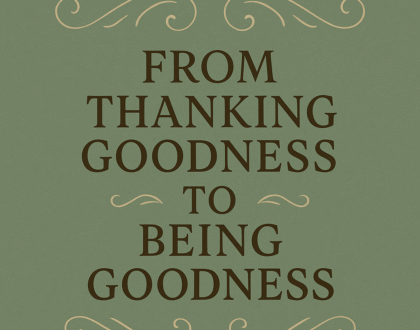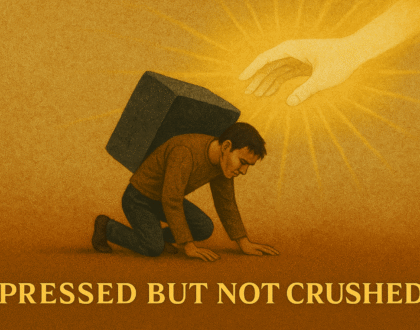Defying Gravity: Rising Above What Pulls You Down

Sunday’s gathering began with a call to worship from Psalm 97, reminding us that God reigns above all, and that righteousness and justice are the foundation of God’s throne. The imagery of clouds, fire, and mountains melting before the Lord set the stage for a deep exploration of what holds us down in life—what keeps us from rising into the freedom God intends for us. Drawing from the song “Defying Gravity” and the story of Elphaba, we reflected on the universal human experience of feeling weighed down by invisible forces, much like the relentless pull of gravity on a playground merry-go-round.
We looked to the stories of Israel in Exodus and Isaiah, seeing how even after being set free, God’s people were tempted to return to the comfort of old patterns and familiar idols. Idolatry, we learned, is not just about golden calves or obvious evils, but about anything—good or bad—that takes God’s place in our hearts. Idols can be as subtle as our work ethic, our pursuit of excellence, our traditions, or even our families and nation. When these good things become ultimate things, they become cruel masters, weighing us down and dividing our allegiance.
The gravity of idols is powerful and often invisible, manifesting in our habits, desires, and assumptions. Yet, the good news is that God does not leave us spinning helplessly. Through Christ, the pull of these idols can be broken. Hebrews 12 calls us to lay aside every weight and sin, to let go of what pins us down, and to run with perseverance by fixing our eyes on Jesus. Ephesians 2 reminds us that God, rich in mercy, raises us up with Christ, seating us in heavenly places—not by our own strength, but by God’s power.
To live in this freedom, three steps are essential: first, recognize and name the idols in our lives; second, lay them down and refuse to play by their rules; and third, rise up and follow Christ by trusting in God’s power to work in and through you. Communion becomes a powerful symbol of this reality: just as the world could not keep Jesus down, so too are we invited to let go of our burdens and trust God to raise us up. We are called to consider what we need to let go of, to support one another in this journey, and to live as people who soar in the freedom Christ gives.
Key Scriptures
Psalm 97:1-7
Exodus 32:1-8
Hebrews 12:1-2
Key Takeaways
- Idols Are Often Good Things Turned Ultimate – Idolatry is not always about obvious evils or golden statues; it often involves good things—like work, tradition, family, or even justice—that become ultimate in our lives. When these things take God’s place, they become burdens that weigh us down, dividing our hearts and distorting our values. The subtlety of these idols makes them especially dangerous, as they can masquerade as virtues while quietly demanding our allegiance. [33:06]
- The Gravity of Idols Is Invisible but Powerful – Just as gravity is unseen yet ever-present, the pull of idols in our lives is often hidden in our habits, desires, and assumptions. These forces set rules for us, dictating what we can and cannot do, and keep us from rising into the freedom God intends. Recognizing this invisible gravity is the first step toward breaking free and living in the Spirit. [36:46]
- Freedom Comes by Naming and Laying Down Our Idols– We cannot defy the gravity of idols unless we are willing to name them honestly and lay them down. This means refusing to play by their rules, letting go of the weights that cling so closely, and sometimes making sacrifices that are neither easy nor comfortable. True freedom begins with the courage to recognize what holds us back and the faith to let it go. [42:23]
- Rising Above Idols Is God’s Work, Not Ours Alone – While we are called to lay down our idols, it is ultimately God’s power that lifts us up. Ephesians 2 assures us that God raises us with Christ, not by our own strength but by divine mercy and might. Our role is to fix our eyes on Jesus, trust in God’s promises, and allow worship to lift us above the world’s pull. [46:11]
- Communion and Community Are Means of Grace for Freedom – The table of bread and cup is a reminder that the world could not keep Jesus down, and neither can it keep us down when we trust in God. Letting go of idols is not a solitary journey; it requires the support of community, prayer, and the continual remembrance of Christ’s sacrifice. As we partake and serve, we are strengthened to live out our freedom and help others do the same. [58:04]
Questions for Reflection
During Sunday’s message, Pastor Jason suggested that idols can be invisible and found in our habits, desires, and assumptions. How might someone recognize an idol in their own life if it’s not obvious?
Pastor Jason challenged us to “recognize and name the idols in our lives.” What is one area—such as work, family, tradition, or approval—where you might be tempted to let something good become ultimate? How can you honestly name this in your own life?
Hebrews 12 talks about “laying aside every weight and sin.” How might the “weights” in our lives differ from outright sins, and why is it important to lay both aside?
Sometimes letting go of idols requires sacrifice and isn’t easy. Is there a specific comfort, security, or value you sense God asking you to release? What step could you take to begin letting go?
On Sunday, Pastor Jason asked, “What weight is pulling you down?” Take a moment to reflect: What is one burden you want to bring to God in prayer today, trusting Him to lift you up? Who in your life can support you in this journey, and how can you invite them to walk with you?
Recommended Posts

From Thanking Goodness to Being Goodness
October 22, 2025

The Pressing Weight of Wickedness
October 7, 2025

God’s Heartbreak
September 22, 2025
